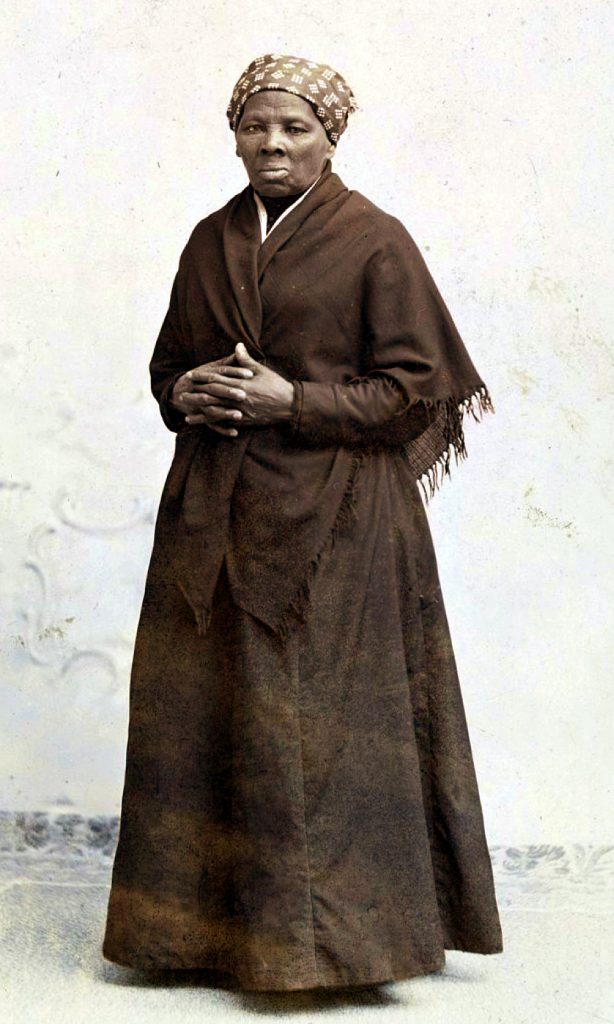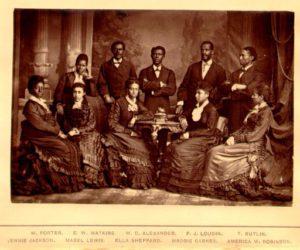Folk music was a genre of music that was brought to the Americas by the enslaved Africans that were captured and sold during the transatlantic slave trade. Folk music was described as music that existed as a part of the everyday lives of the African Americans. African Americans would use folk music to express their feelings of sadness, joy, frustration and longing for their true home. The enslaved African Americans would also sing protest songs to mock their slave masters and express their dissatisfaction with their conditions. These protest songs would also be used by conductors of the Underground Railroad to free slaves by putting the directions to freedom in the lyrics of the song. Harriet Tubman, one of most well-known conductors of the Underground Railroad, used protest songs to alert the nearby enslaved African Americans that they would soon begin their journey to freedom. Folk Music and Feminism are connected because protest songs were used by feminist icon, Harriet Tubman, to fulfill her feminist agenda of freeing the enslaved men and women in North America.
How is the freeing of men and women from slavery related to feminism? According to the formal definition of feminism, Harriet Tubman is the embodiment of feminism. The Merriam Webster defines feminism as “belief in and advocacy of the political, economic, and social equality of the sexes expressed especially through organized activity on behalf of women’s rights and interests”. By risking her life to free her enslaved brothers and sisters, Harriet Tubman breaks free from the shackles of what is expected of a slave and a woman. Exemplifying strength and intelligence by leading hundreds of slaves to freedom and evading capture defies the stereotype of women being weak and simple-minded. Even after being freed from slavery, Tubman continued her feminist agenda by working with well-known women’s suffragists to contribute to the movement,
Harriet Tubman, the feminist icon, used folk music to assist in her work as a conductor of the Underground Railroad. Specifically, Harriet Tubman used the folk music song “Follow the Drinking Gourd” to notify the slaves that they would be leaving to go on their journey to freedom soon. In using a folk music protest song, Harriet Tubman created a connection between folk music and feminism through her brave actions.
As exemplified by the accomplishments of Harriet Tubman, folk music and feminism are intertwined because they were two institutions used in the freeing of slaves. Harriet Tubman, a woman who broke through societal stereotypes about women, used folk music to work to free the enslaved African Americans of North America.




